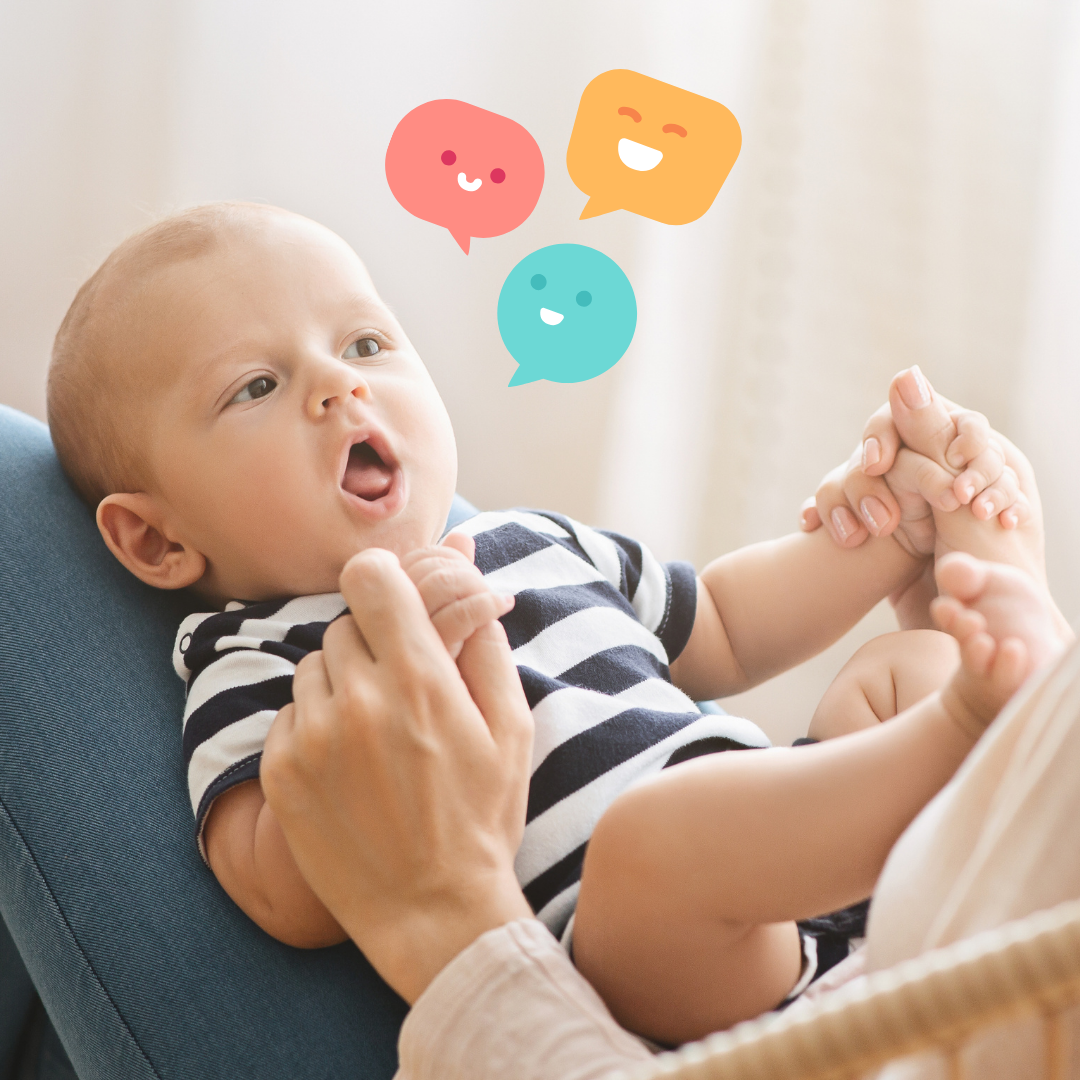Bonding with your Newborn

Bonding and attachment with your baby are vital for healthy development. Forming a strong physical and emotional connection between caregiver and infant will help to release hormones and chemicals in the brain, encouraging rapid brain growth. Bonding also promotes development of connections between brain cells that are critical for learning, the growth of your baby’s body, and the positive development of your baby’s sense of self and how to deal with feeling upset.
Babies usually form a strong attachment to their main caregiver, but they also bond with other people too. It’s common for babies to attach to their mother starting at week 31 of pregnancy. In utero a baby can recognize and be soothed by the mother’s voice and by the time of birth can recognize some sounds of the mother’s native language. In addition to forming a bond with the mother, babies can also attach to the father, grandparents, or a significant childcare worker in their life.
You can start to bond with your baby by responding to their needs. From the moment their born you’ll start seeing behaviors or signals to show that their attached to you. Depending on their age and where they are developmentally, signs of attachment include:
Making eye contact
Smiling, cooing, laughing or other noises directed towards you
Holding their arms out to you
Crawling after you
Copying you
Crying for what they need when they look at you
Looking interested in something you’re doing
Mothers are biologically designed to act when their babies cry so you might feel anxious if you cannot respond to them right away. If you can see your little one has everything they need and are safe, reassure them you’ll be there as soon as you can and when you get to them calmly sooth and comfort them.
If you feel like you, or your spouse, are struggling to bond with your baby here are some techniques you can try:
Regularly touch and cuddle your newborn
Respond to crying to let them know you’re there and their needs will be met
Provide skin to skin contact
Talk, sing, read books and play simple games together
Bathe your baby before bed
Once you know what your baby likes, do it regularly
Hold your infant and rock them gently
Some might bond with their infant instantly and others might take a while. This is OK. Bonding an attachment can sometimes take weeks to months of getting to know and understand your baby. Caring for a new baby can be busy and overwhelming, try just spending time together as you being to build your bond.
The birth of a baby can trigger a lot of different emotions, from excitement and joy to fear. If you suspect you are suffering from Postpartum Depression or Anxiety talk to your health care provider.
Share this post
About the Author

Meet Anna Chase, Colic Calm's dynamic and thoughtful Director of Marketing. Anna has a passion for health, especially when it comes to helping Moms and little ones. When she isn't leading the communications for Colic Calm, Anna enjoys spending time with her family, laughing a lot and soaking up the sunshine in Florida.
Related Posts
The Importance of Mom Friends
The Colic Survival Guide - Everything You Need to Know
Multivitamins for Babies
21 Essentials to Pack in Your Hospital Bag
Topics
- Probiotics
- Baby Hiccups
- Infant Formula
- Infant Feeding
- Immunity
- COVID-19
- Breastfeeding
- Baby Shower
- Colic
- Infant Sleeping
- Tips for Moms
- Labor and Delivery
- Baby Gas
- Gas and Reflux
- 0-6 Month Gifts
- Self Care
- Clinical Study
- Development
- Birthday
- Hydration
- Activities
- Products
- Recipes
- Gas
- Holiday
- Tips for Dad
- Baby Feeding
- Bathing Baby
Tags
 Canada
Canada South Africa
South Africa UK
UK EU & Int
EU & Int Ireland
Ireland Australia
Australia Brazil
Brazil New Zealand
New Zealand

















Comments